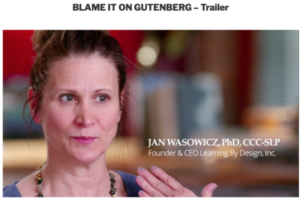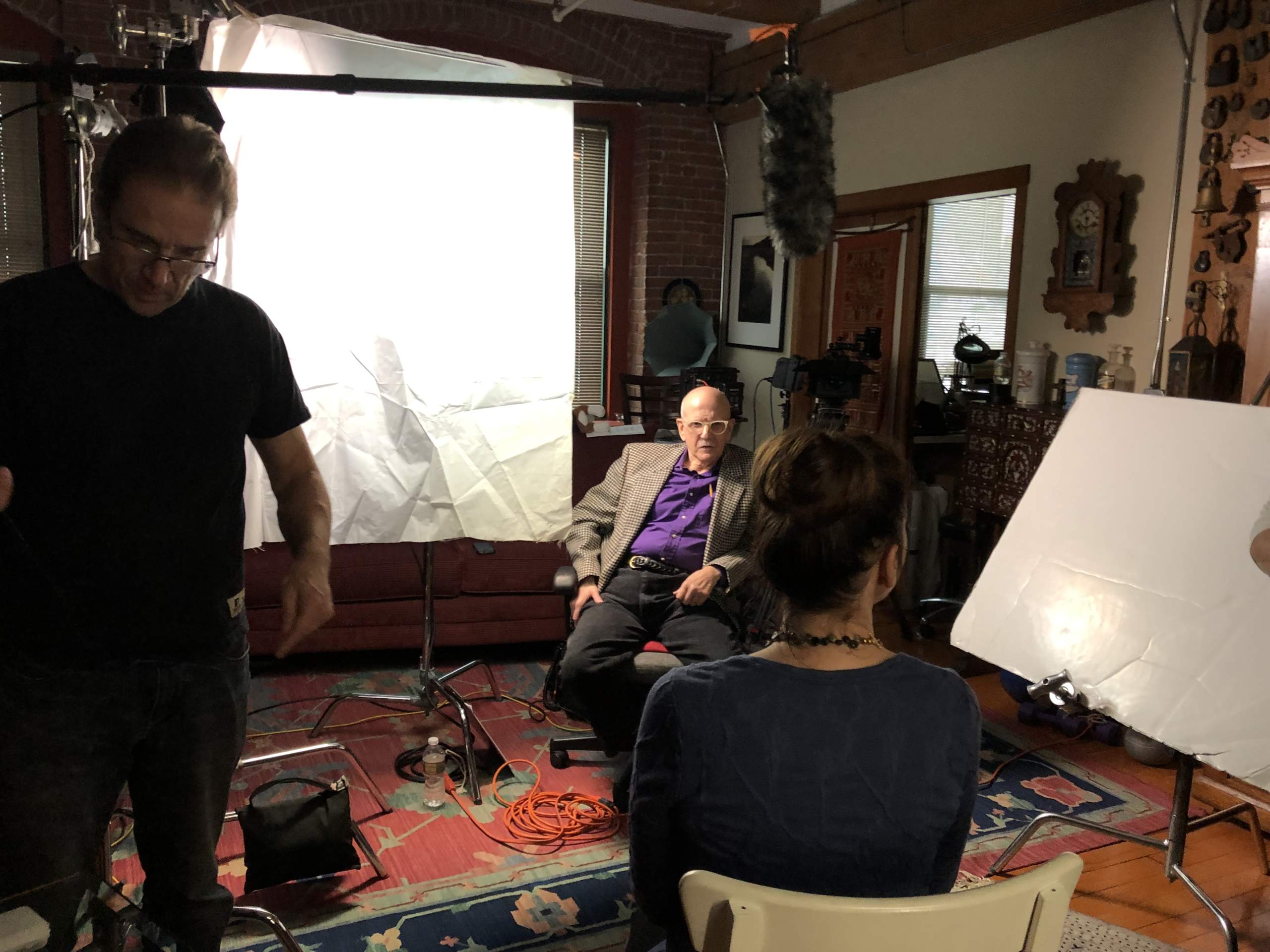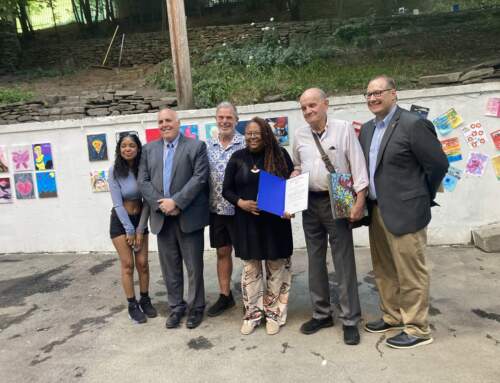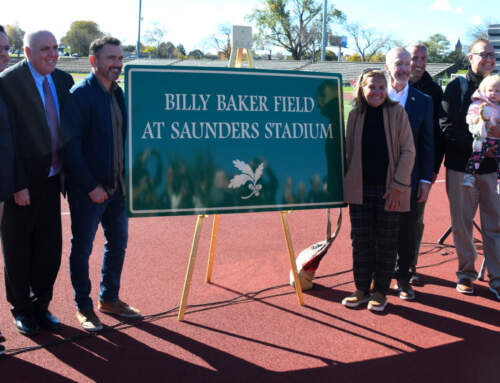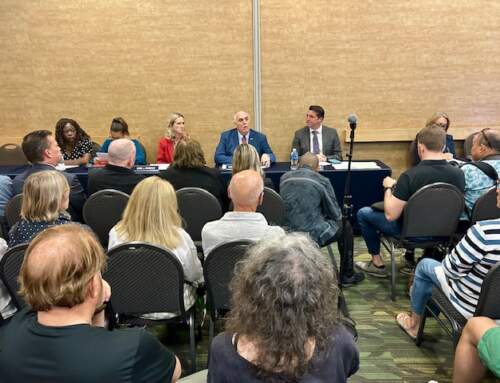By Ginger DeShaney
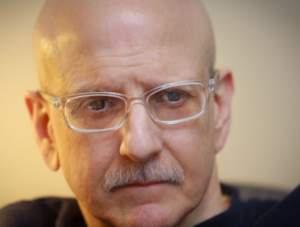 Black Pearl Productions’ passion project, “Blame it on Gutenberg,” is getting high praise from the dyslexia community.
Black Pearl Productions’ passion project, “Blame it on Gutenberg,” is getting high praise from the dyslexia community.
Fort Point resident Rocco Giuliano is a writer and producer on the documentary and filmed some of the interviews at his A Street studio.
“This is a must-see documentary on the evolution of reading, reading science, and dyslexia,” Susan L. Condrin, M.A., CCC-SLP, said in a testimonial.
The documentary, which is directed at parents, focuses on the evolving science of dyslexia, dueling theories over how to teach reading, and one family’s struggle with an unresponsive school system.
The film defines dyslexia as a general term for disorders that involve difficulty in learning to read letters and symbols.
In 2016, a nonprofit reached out to Black Pearl about a documentary on dyslexia. “But we had a completely different idea of what the film should be, so basically we parted company,” Rocco said.
However, they were so intrigued by the topic that Rocco, along with Black Pearl principals Rob and Cecilia DelGaudio, decided to forge ahead – the COVID-19 pandemic presented a challenge – with Rob using his own money to fund the project.
Frank Romano, president of the Museum of Printing in Haverhill, is interviewed in the film. He said the invention of the Gutenberg Press changed everything because disseminating information via print put such a premium on data that it defined how people were valued by society.
But no one is wired for reading and writing, Jan Wasowicz, PhD CCC-SLP, Founder and CEO of Learning By Design, Inc., said in the film.
People have to get through the print barrier to learn how to read, Rocco said. “And if you can’t, if you find it really hard to learn how to read, you find a way through, under, or around it. You find some way to deal with it.”
Rocco wants to make sure that all kids have the opportunity to excel at something because that’s extremely important.
The film goes into the debate on the ways to teach reading. The best science-based approach is called structured literacy, but a lot of schools do not teach that way, Rocco said, noting that many use the whole language approach, which is more fun. “I try to encourage or educate people about the importance of structured literacy,” Rocco said.
“If all kids were taught with [the structured literacy] approach, starting at a very early age in an age-appropriate way, there would be fewer kids identified as dyslexic.”
As a writer on the project, Rocco had to decide how to tell the story, what points needed to be made, and who should be interviewed.
Others interviewed in the film include Thomas G. West, author of “In the Mind’s Eye, Thinking Like Einstein, Seeing What Others Cannot See”; Nadine Gaab, PhD, Associate Professor of Pediatrics, Boston Children’s Hospital and Harvard Medical School; Dean Bragonier, Founder and Executive Dyslexic of NoticeAbility.org; Matthew Schneps, PhD, Research Professor at UMass Boston; Angelique Decoste, M.S. CCC-SLP, CAGS, Elementary Special Education Program Head, Andover Public Schools; and Dr. Sara Stetson, Assistant Superintendent of Student Services, Andover Public Schools.
The film debuted in December 2022 and it’s gotten great response, Rocco said, “because people can relate to this. It tells a human story, and you’ve got the science.”
The film could be shown at the World Literacy Foundation in England; Black Pearl is expecting an endorsement from the International Dyslexia Association; and the organization will be meeting soon with the Morelli Legacy Foundation.
But Rocco and Rob are hoping to get more interest and more public showings, and possibly get the film on Amazon and Netflix.
People can go to https://blameitongutenberg.org/ and watch the trailer or the full-length feature. If you are moved, you can donate to help offset the costs to make the film. There is also a section on the website to schedule group showings for a fee.
The film falls under the Filmmakers Collaborative, a 501(c)(3) nonprofit organization so donations will go through the Collaborative.
“We want as many people as possible to watch the film,” Rocco said.
“What a marvelous documentary that managed to weave research, science of reading, neurobiology, child development, speech/language, teaching literacy, a personal ‘real life’ story, without overwhelming the viewer,” said Aletta Sinoff, BCBA-D, PhD, CCC-SLP Speech-Language Pathologist.
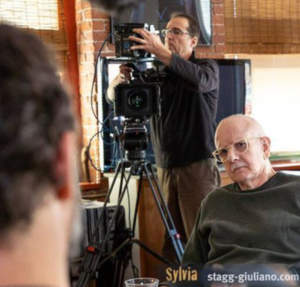
Rocco Giuliano interviews Dean Bragonier,
Founder and Executive Dyslexic of NoticeAbility.org.
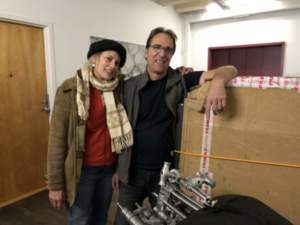
Cecilia and Rob DelGaudio (Black Pearl Productions) at Studio 34, 249 A Street, Visual Artists Coop
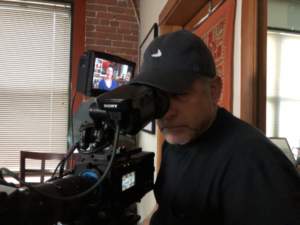
Director of Photography Joe Figucia
